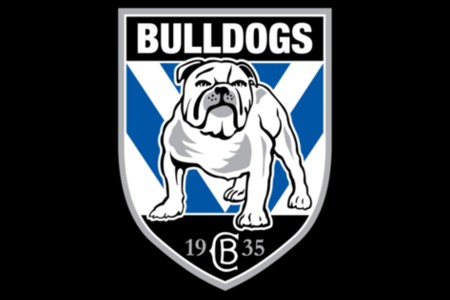There is a big difference between a club having a tough few years and what we are currently seeing the Century Bulldogs going through.
The Bulldogs, because of terrible administration, poor coaching and the repercussions of salary cap breaches, hit a point where they had no good juniors coming through the club, their first grade team was one of the least talented in recent memory, the club found it hard to attract a coach of any quality at all, and the standards at all levels dropped to the floor.
When the standard drops….that becomes the standard at a club. Close enough is good enough.
It might seem like the easy way to turn all of this around is to just get a decent coach in place and buy a bit of talent to the club, but when you fall as far as the Bulldogs did, its not that simple.
Turning around a clubs culture when it is terrible at every single level takes a very, very long time. We’ve seen the Bulldogs splash out cash on a lot of very good talent in recent years, and yet look where they remain on the NRL ladder.
When the Bulldogs signed Cameron Ciraldo from the Penrith Panthers they were looking for a coach who could come in a change the culture. Someone who was coming out of a winning system. Someone who knew what the standards needed to be. Ciraldo’s job as head coach was to set a new standard at the Bulldogs, and that is where the art of being a head coach comes into play.
No one knows who will be a good first grade coach ahead of time. NO ONE!
Until a coach gets their chance, takes on board all that responsibility, all that pressure, until we see them juggling not only the tactical side of the game, but the interpersonal relationships, then the focus on player development, player recruitment, salary cap management, dealing with the media, no one knows who is up to the job of being a good first grade coach.
This is Ciraldo’s first time as a head coach in the NRL. He has taken on board one of the toughest jobs you could imagine. It’s all on him.
A lot of talk this week in the corporate media is centred on an issue at training where by a first grade player allegedly turned up late to training and as “punishment” they had to do extra wrestling drills against team mates. “Punishments” like this are common place in a team sporting environment. A lot of people who have never been involved in team sport labeled this as bullying, but it’s nothing of the sort. It’s about players having a collective responsibility for the standards they all agree to meet as a group. It’s about enforcing these standards. Its about turning up, acknowledging you haven’t met those standards, and showing your team mates you are willing to put in the extra work to prove yourself worthy of not only their respect, but in a way it is an apology to your team makes for letting them down.
In this case, the player in question was distressed by the way this was handled, and this is where the interpersonal relationship because a head coach, his training staff, and his playing group all comes into play.
Some players you can push all day and they’ll never say a thing. Some you can call out personally in front of all their team mates and it will galvanise them. Others are different, and thats OK. Some players respond better to a quiet word. Some respond far better to a private meeting away from their team mates. This is the art of coaching. Knowing what each individual player needs, how to get the best out of them, and how they respond to different sorts of encouragement and criticism.
Imagine trying to do all of that, while knowing you have to lift standards way higher than they are, knowing that many of the players you are coaching might simply not have the talent needed and will need to be moved on, doing all of that under wild media scrutiny.
Its a tough job!
How do you balance the needs of an individual who might not be a player who is going to have a first grade career against the need for the club to keep moving forward?
Being an NRL player is a tough gig. Not everyone is up to the task. That’s OK! If it was easy, we’d all be doing it!
Right Now the Bulldogs are going through a process where by they are working out who is up to the absolute basics of being a first grade footballer. Keep on mind, they are not just doing this with one or two players, they are having to do this basically across an entire squad of players. That process is going to leave some players behind, and unfortunately the clubs needs that to move forward.
While it is important that clubs look after individual players, who are people like you and I after all, it is also important that standards are maintained. The Bulldogs won’t get better just by settling for close enough is good enough. They have to set their standards much, much higher.
For Cameron Ciraldo, his job depends on it. The clock is already ticking and if he doesn’t turn the Bulldogs around in some way he might not get another first grade coaching gig. There’s no long therm time line for him, the process needs to be underway now.
This is why it is so difficult to lift a club off the very bottom of the NRL.







